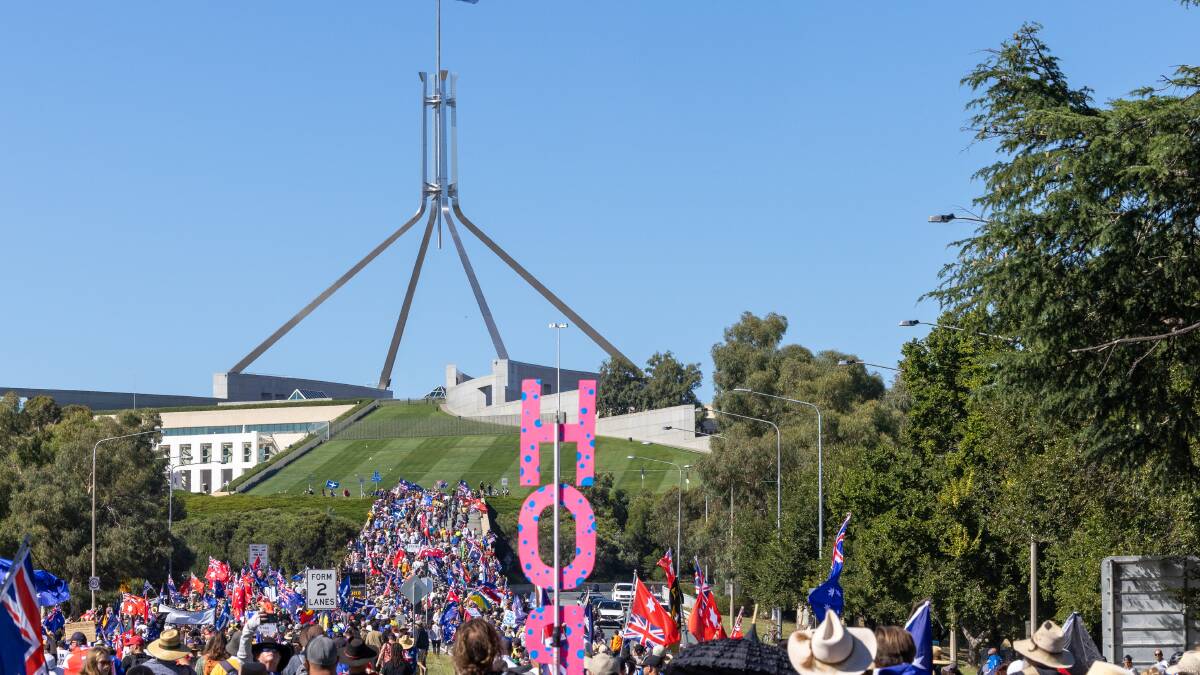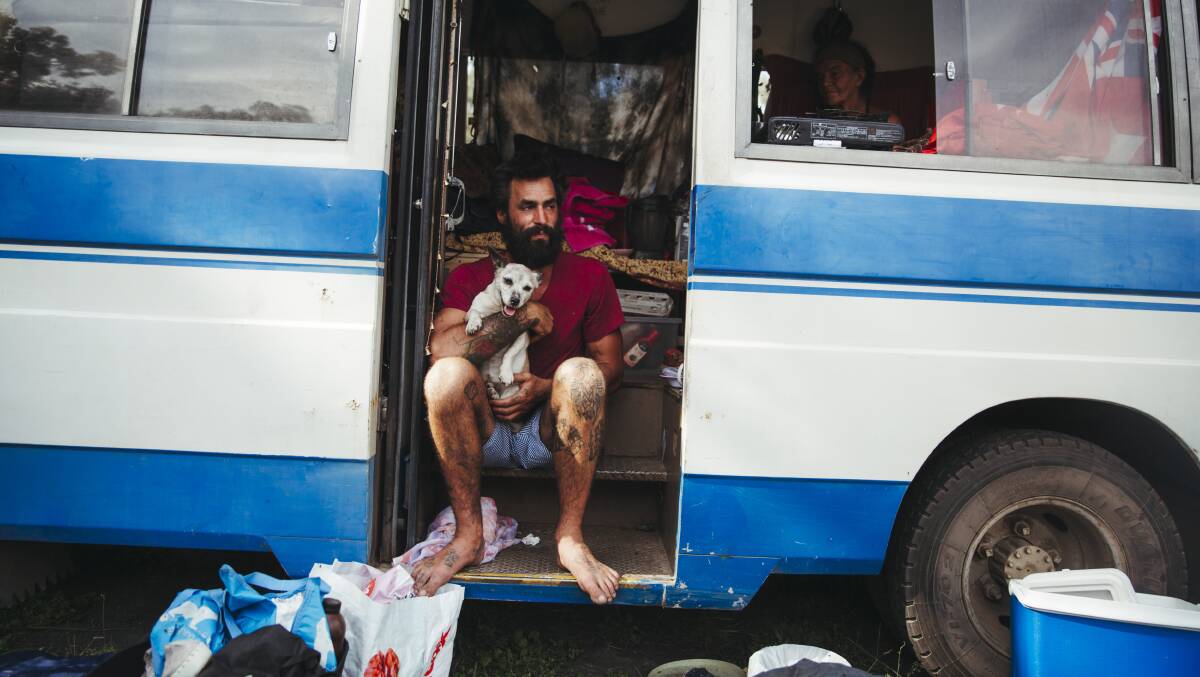
Protest organisers both in the ACT and across the border appear determined to encourage a rally in Canberra this Saturday, with sympathisers increasingly claiming an intention to return.
Two separate rally plans have begun being circulated on social media, flagging two separate protests scheduled this coming weekend.
With the few who haven't gone home now separated into small groups in the ACT and NSW, the possibility of a mass return to Canberra on Saturday seems unlikely.
Police in the ACT have warned the public some road closures and diversions may be required.
In a statement on Thursday, police said Canberra residents will be advised should they become aware of plans for significant protest activity.
Deakin University's Josh Roose is an expert on violent extremism. He said a small gathering in Canberra on Saturday seems likely.
Dr Roose said movement leaders like former Special Forces officer Riccardo Bosi are working hard to prevent protest fatigue setting in.
"They're using a misinformation campaign to grow the movement and to encourage people to come along," he said.
"The numbers are basically being drummed up in an attempt to create momentum."
Mr Bosi has claimed three million people attended Saturday's march to Parliament House, accusing the mainstream media, police and the government of trying to downplay its support.
Dr Roose said with official estimates for the march ranging from 10,000 to 20,000, the protesters still represented a fringe minority.
READ ALSO:
- When a quiet week at the Cotter gets disrupted by protesters
- Chief Minister Andrew Barr takes aim at political spenders supporting anti-vaccination protests
- Convoy to Canberra protesters considering private land
"What we've seen over the course of this movement has been that momentum ebbs and flows," he said.
"If you look at the membership of some of these online groups and the various groups that pop up, we're talking less than 20,000.
"It grew exponentially during the September, October protests in Melbourne and Sydney, but it stayed pretty stable even through these last protests in Canberra."

Dr Roose said the high vaccination rates, almost 100 per cent in Canberra and 95 per cent across the rest of the country, was evidence the anti-vaccination mandate protesters still represented a minority.
"At most, we're talking about a million people who might have some sort of opposition," he said.
"And we're seeing 10 or 20,000 of those individuals protesting and making a lot of noise."







